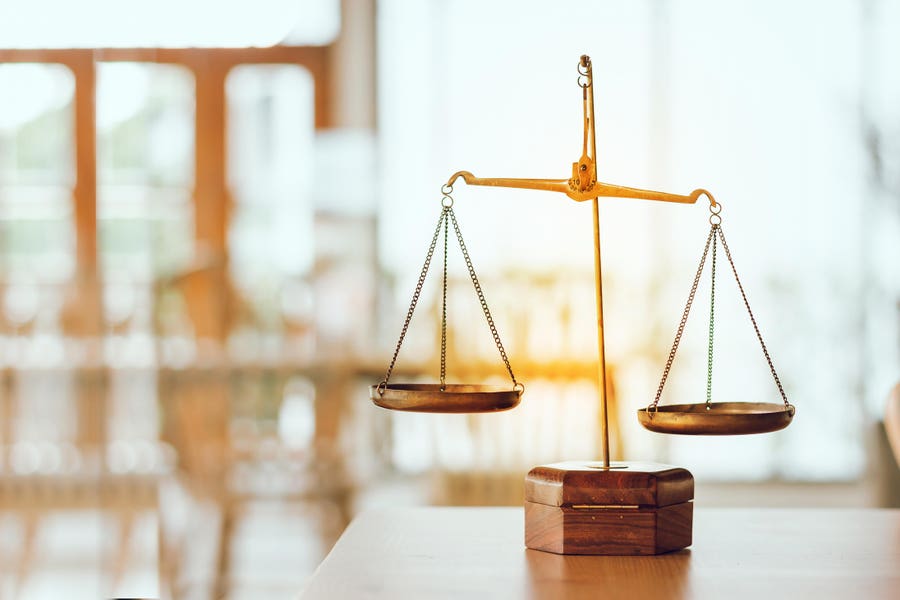
Decentralization is the most fundamental value of the cryptocurrency space, as well as the main obstacle to its adoption. While decentralization empowers individuals and fosters innovation, the lack of clear rules and oversight has attracted bad actors and has fueled concerns about financial stability, money laundering, and consumer protection. Governments are struggling to formulate clear rules capable of addressing fundamental changes wrought by this new technology.
The industry has suffered from the consequences of its lack of clear rules, which is increasing the pressure for regulation in the cryptocurrency space. In the middle of restless regulators, skeptical investors, and die-hard decentralization purists, new projects are emerging that aim to find a middle ground.
Illicit Activities In The Cryptosphere
Data from Chainalysis shows that illicit activities in the cryptocurrency space have been showing a rapid increase in recent years, reaching a peak in 2022 with over $39.6 billion worth of funds stolen by scammers and hackers. Even though the year 2023 managed to record a decrease to $24.2 billion, the stolen amount is still large enough to dissuade many investors from participating. According to Security.org’s 2024 Cryptocurrency Adoption and Sentiment Report, 44% of participants who don’t own cryptocurrencies said they would never buy. At the top of the list for reasons they gave was the lack of government protection.
The pressure to impose rigid regulations on the cryptocurrency space escalated after the collapse of the FTX exchange in 2022. Little has changed in the last two years, the same pressure persists. There have been small initiatives to increase regulatory overview on cryptocurrencies, however, a comprehensive solution is yet to be composed. The result is a decidedly anti-industry bent among legislators nad regulators.
Just last week, U.S. Treasury Secretary Janet Yellen emphasized the need for strict regulatory measures against cryptocurrencies, stating, “Congress should pass legislation to provide for the regulation of stablecoins and of the spot market for crypto-assets that are not securities.”
According to Under Secretary Brian Nelson, who said on February 13, “Looking forward to discussing Treasury’s busy month of action to protect the U.S. financial system from illicit finance,” on X, the government rolled up its sleeves for a comprehensive regulatory framework for cryptocurrencies.
Blockchain Infrastructure Solutions for Regulatory Compliance
Regulatory and legal requirements in the legacy financial system have long been enforced through the court system. In an administrative state, courts resolve the disputes between the regulated entities and the government officials charged with enforcement, assuring that businesses receive due process and that the industry fulfills its legal responsibilities.
However, this tool has proven useless in the cryptocurrency ecosystem due to the absence of central authorities who can receive and administer court orders. Regulators have therefore sought to impose highly burdensome and impracticable workarounds, such as requiring cryptocurrency miners to enforce KYC/AML rules on un-hosted wallets.
A new alternative seeks to provide infrastructure for blockchains themselves to interface with official government courts. The leading provider is Jurat, which claims to provide court-connectivity without sacrificing decentralization through its ‘Judicial Manager’ feature. We reached out to Mike Kanovitz, CEO of Jurat, for comment. He described the need for such protocols, saying, “The future of cryptocurrency lies not in clinging to rigid anti-government ideologies, but in assuring would-be adopters that their legal rights will be protected effectively. Blockchains with our court systems can pave the path to the clear legal frameworks needed to unlock mainstream adoption and protect those consumers who choose to trust their wealth to a blockchain.”
The protocol implements judicial rulings on-chain, allowing legal recourse for fraudulent or mistaken transactions without resorting to centralization or intermediaries.
Regulation For Blockchain, Decentralization For Traditional Agencies
The idea of a regulated blockchain offers twofold benefits. On the one hand, it smooths the decentralization vs. regulation debate, while on the other, it provides a window for traditional commercial actors to incorporate blockchain technology into their systems.
On the regulatory side, providing automated regulatory enforcement will empower regulators with new options for implementing their policies on blockchains and allow them to show presence and control to combat illegal activities. If there’s a dispute on a topic, regulators can raise the issue in court, just like for off-chain cases. If the judge agrees, regulators can freeze or enjoin smart contracts assets on-chain, preventing further illegal activity and safeguarding investors.
On the cryptocurrency side, a regulated blockchain will result in increased legitimacy, trust, and confidence, which could lead to increased adoption and attract institutional investors and commercial users who have been previously hesitant to enter the crypto space.
From a broader perspective, the ability to resolve digital asset legal rights on a court-connected blockchain could leverage the technology for tokenizing real-world assets, knowing that legal recourse is readily available within the blockchain itself. This would pave the way for blockchain to become a mainstream technology in all areas of business, thereby fostering the efficiencies and productivity the technology promises.
As a technology, blockchain is capable of many things, including storing large amounts of data and auto-executing certain actions when certain conditions are met. Establishing a connection with the judicial rulings and reflecting them on-chain will allow regulators to do their jobs effectively in the blockchain sphere. While regulators cultivate the capabilities of blockchain to regulate the crypto markets, the cryptocurrency field can offer a better sense of security and reach out to skeptical investors.

